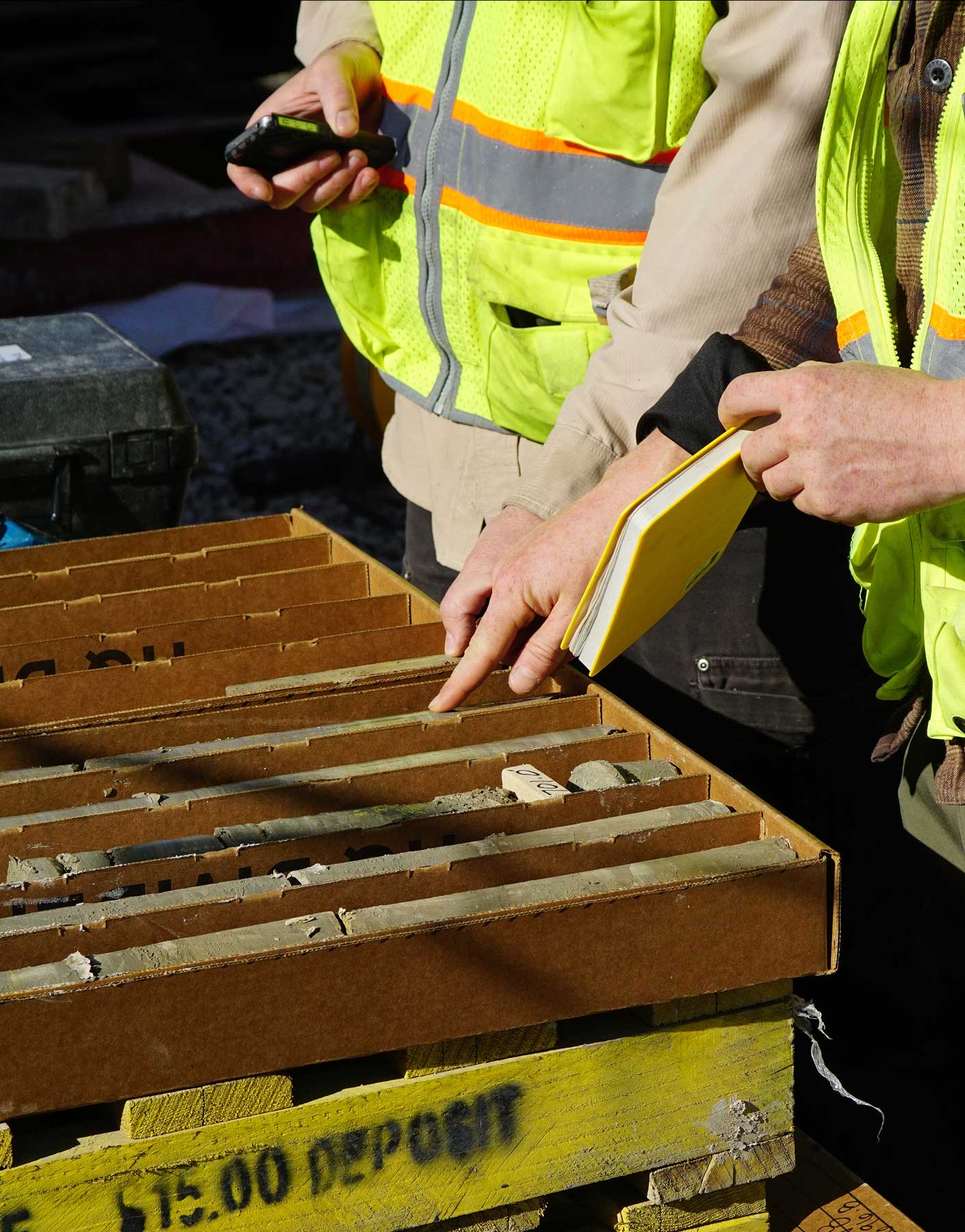FIELD TIPS
agosto 13, 2019
Five Tips to Creating a Better RFQ for Your Next Drilling Project
The time has finally come to drill your project and really see what lies below. Putting together an RFQ/RFP can be an overwhelming task and it is easy to assume the drilling contractors on your bidders list know what you are looking for. This can invariably lead to an RFQ that overlooks basic requirements and creates confusion among the bidders, leaving your cost comparison and value chain decisions in shambles. Here are five steps to creating an RFQ that gets you a quality contractor who can best deliver to your expectations.
1. Project Timing and Key Milestones
Spell out key aspects of the project timing and any key milestones. Do federal (national) or state (provincial) permits only allow the drilling contractor on site at certain times or durations? Are there exceptions in the permit due to habitat/breeding concerns with local wildlife? Will site access become problematic during a change in weather, ie. rain, snow, heat? If site access is only helicopter accessible, are there firm start and end dates? Are the dates pertaining to any site visits, question periods, tender submission, and project award clearly spelled out?

2. Defining Key Drilling Operational Aspects of the Project
There are many variables that contribute to the overall success of a drilling program. Setting clear expectations around anticipated penetration rates (if applicable, historic rates are best), acceptable core recovery percentage, drilling accuracy/hole deviation, survey intervals, core orientation, consumable supplies, sample storage / core boxes, water sourcing and transport, automated rod handling, accommodations for geotech support, etc. provides those bidding the work with consistent information, allowing a better value comparison in the end. Failing to define expectations often leads to operational confusion, delays, cost overruns, change orders, and future discussion around cost containment. No one wants their program shortened because time and money were wasted resolving issues that could have been clarified up front.
3. Special Conditions
Unique site conditions can make or break a project. Understanding your permit and the applications to your drilling program are paramount. Requirements for water usage and drilling fluid disposal are vitally important. A drilling contractor can incur significant additional costs to complete a drilling project if drilling fluid management is not clear in the RFQ. Many drilling projects are now moving to drilling fluid management systems that produce a semi-dry solid and do not put any drilling fluid on the ground or in an onsite pit. What about noise? Are there requirements regarding wildlife disturbance, breeding periods, migration areas, nearby housing, or other potential issues where noise from the drilling activities on the site would impact a drilling contractor’s ability to operate?
Site disturbance has also become an increasingly important issue as it is typical for permits to only allow so many acres of active disturbance prior to reclamation activities. Given your site locations, how many active sites can you have with proper regard to safe operations?
Clearly defined travel routes to the drilling locations and laydown areas as well as expectations about off-road travel and potential one-off events are important and best sorted prior to bid submission so that all the potential service providers know what is required. Many contractors have seen instances where the drilling crews identify alternate travel routes, for various reasons, that do not meet project or permit expectations.

4. Identifying Key Contacts for Clarifications
During the bidding process it is inevitable that questions will arise no matter how well the RFQ has been prepared. Having a clearly identified team and communication process speeds up resolution and keeps all the bidders on the same page. Identifying representatives from Geology, Hydrology, Health and Safety, Engineering, and Supply Chain/Procurement and having them in the loop on the project specifications assists potential bidders in getting questions answered and any necessary clarifications made easily and quickly.
5. Nonconforming Bid Submissions
Be clear about non-conforming bids. Will they be accepted and considered? Accepting a non-conforming bid that may seem to provide a better value often ends up adding confusion to the decision-making process by straining accurate comparisons between contractors and lengthening the tender process through additional questions and needed clarifications. Take the time to be thorough up front and the outcome will be better served without wasting time trying to sort out how to compare a non-conforming tender.
At the end of the day, a strong contract is the best way to guarantee project success and if things get off track, it provides a clear backstop to discussions and issue resolution. Thinking through the key aspects of the program and vetting ideas and mitigation plans prior to issuing the RFQ results in bid submissions aligned to your expectations, allows for easier comparison among contractors, and keeps your project timing and costs on track from day one. Happy Drilling!
DOWNLOAD RFQ TEMPLATE
Download our sample RFQ Template, free for use.




